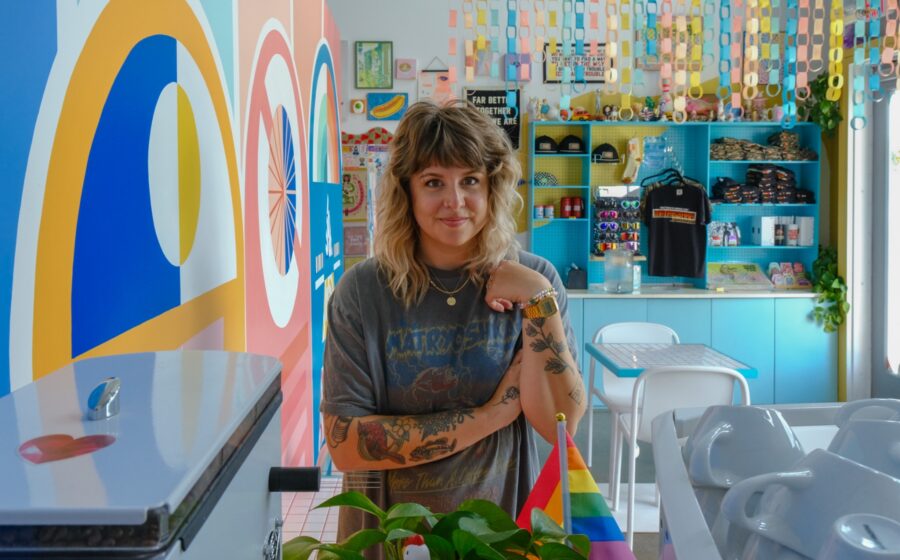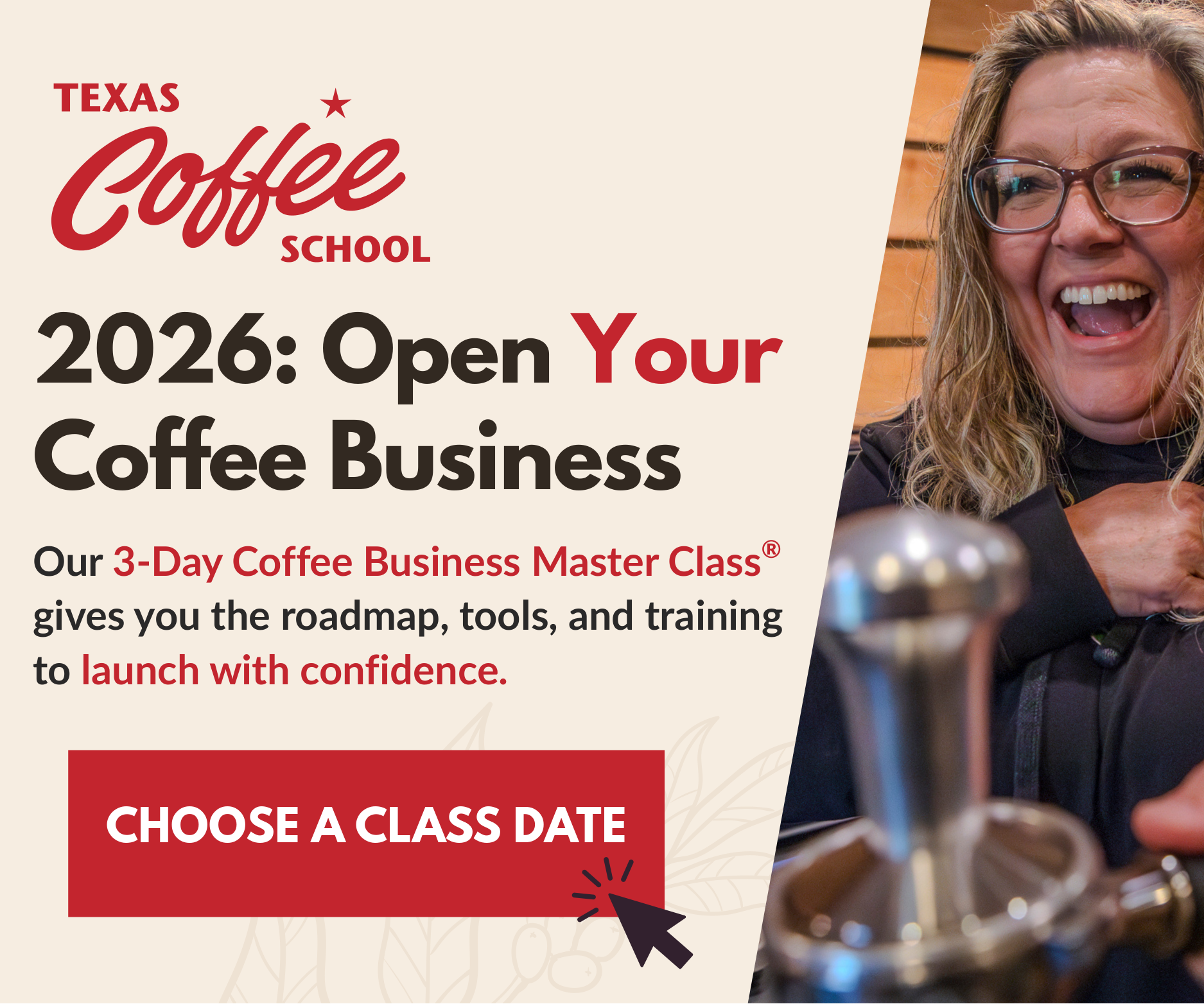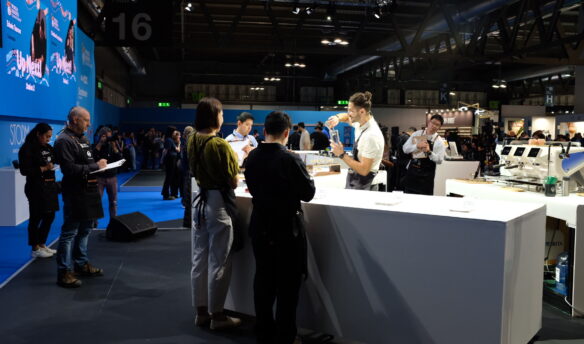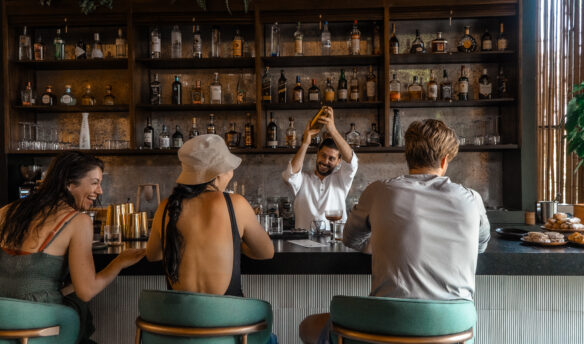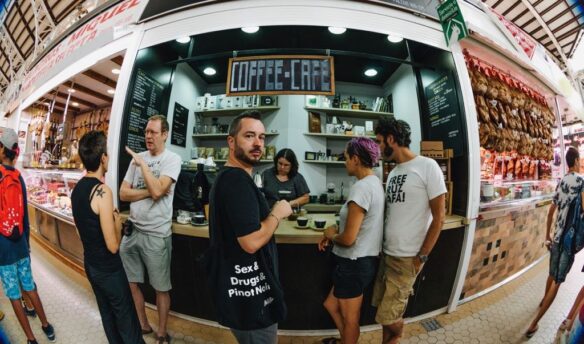When Abbey Chiavario decided to open a coffee shop in the front space of her partner’s coffee and espresso technician business, she’d never actually worked in coffee before. Her relative newbie status in the industry gave her the freedom to experiment, or as she describes, “mess around and find out.”
What does that mean? For Chiavario, it means creating a space that surprises and delights. In 2021, she opened Matryoshka Coffee (a nod to the fact the shop is technically within her partner’s shop, kind of like nesting dolls), a 300-square-foot cafe in Nashville, Tennessee, with the goal of fostering community, making coffee fun, and using color to signal that the space is welcoming for all.
In an era where coffee shops embrace minimalism and can tend to look like one another, Matryoshka is full of bright colors and off-the-wall menu offerings: you can order an espresso with a side of Lucky Charms or ramen noodles. Paper garland chains hang off the ceiling while a bright pink menu board boasts drinks like specialty drinks that honor Diane Keaton’s character in the movie “Something’s Gotta Give.”
As a former Instagram influencer, Chivario knew that if she started a coffee shop, it would be different from others she frequented. The space would be an extension of her identity, and she wouldn’t conform to what others might believe a coffee shop should look like.
Matryoshka often goes viral on social media because of its unconventional drinks and bright aesthetic. While the industry is shifting to allow for more creative ideas and energies, Matryoshka still stands out for its atmosphere, menu, and ability to have fun with coffee.
What was your vision for Matryoshka?
I read a book called “Joyful: The Surprising Power of Ordinary Things to Create Extraordinary Happiness” by Ingrid Fetell Lee, and it is all about how your environment can bring joy to people. It talks a lot about things like how an expansive forest makes you feel a certain way or how circles and bubbles and colorful things can [harken feelings] like the element of surprise.
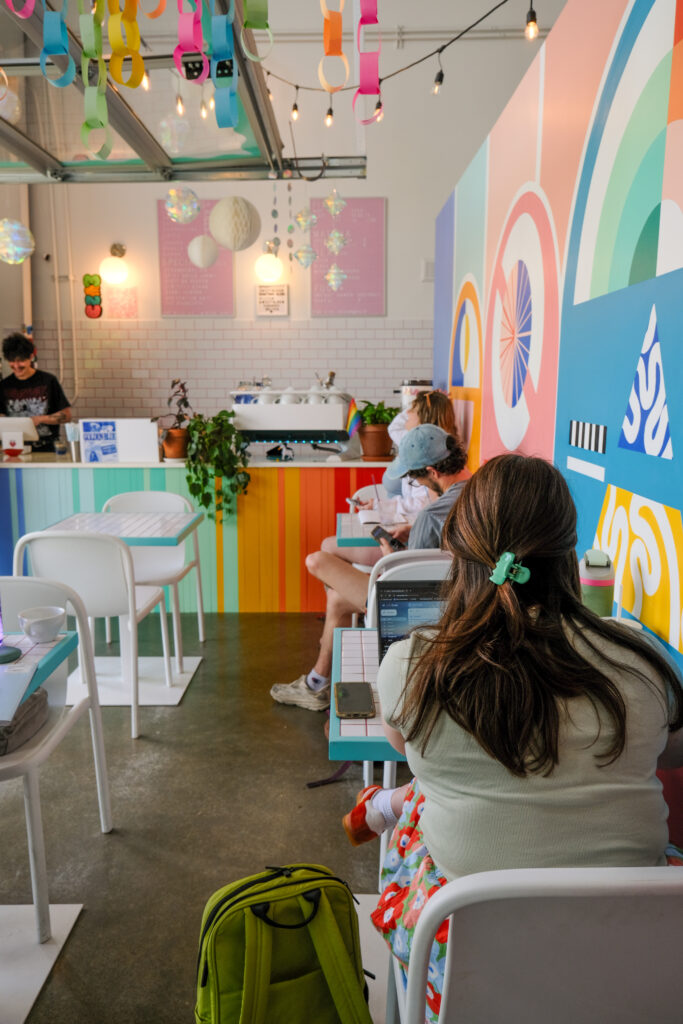
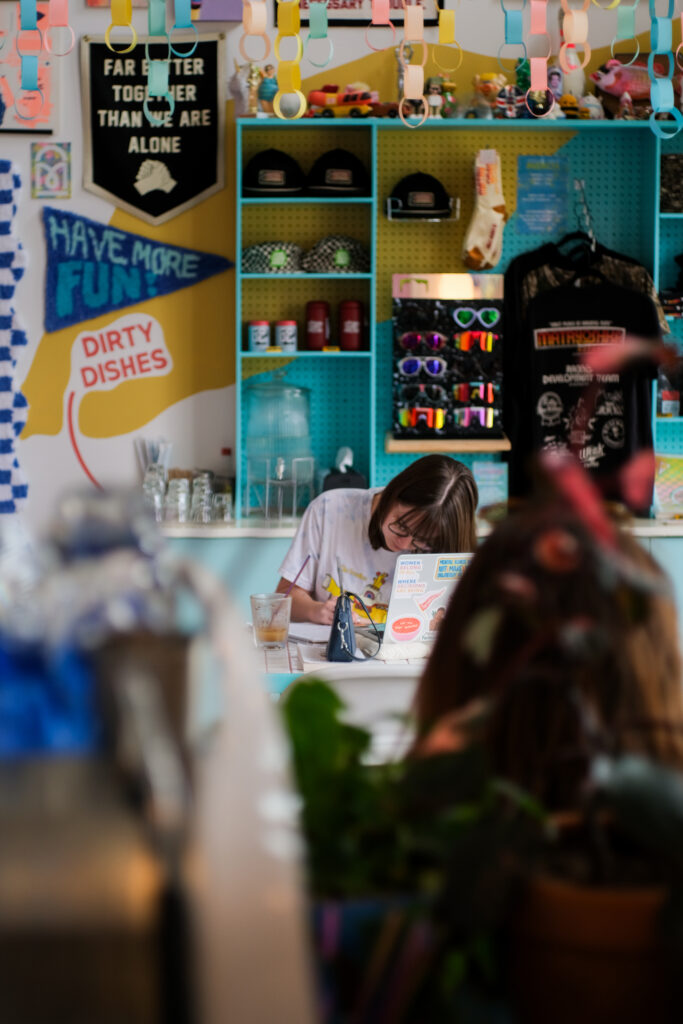
Our shop is located in an industrial park, and it has very spooky murder vibes if you’ve never been there before. Then, when you find us, it’s fun because the space is very colorful even though it’s really tiny.
I was annoyed that so many shops used only three colors—black, white, and green—and I got tired of it. I wanted to challenge myself to do something different.
You carried that idea of uniqueness into your drink design. Can you talk more about what’s on your menu?
The idea behind Matryoshka is to take anybody nervous about entering a coffee shop and make them not feel that way. The concept of not taking anything seriously is the guiding principle for everything we do. My biggest annoyance in the industry is that people take everything so seriously.
That’s why we created the gas station cappuccino. I feel like a lot of people’s introduction to coffee is that cappuccino you get from a machine at a gas station.
The idea came to me at a trivia night with my friend. We decided to steam milk with the espresso and the syrup together. So when we make a gas station cappuccino, we put the syrup in the pitcher, pull the shot into the pitcher, dump the milk on top, and steam it all together—and it’s just so good.
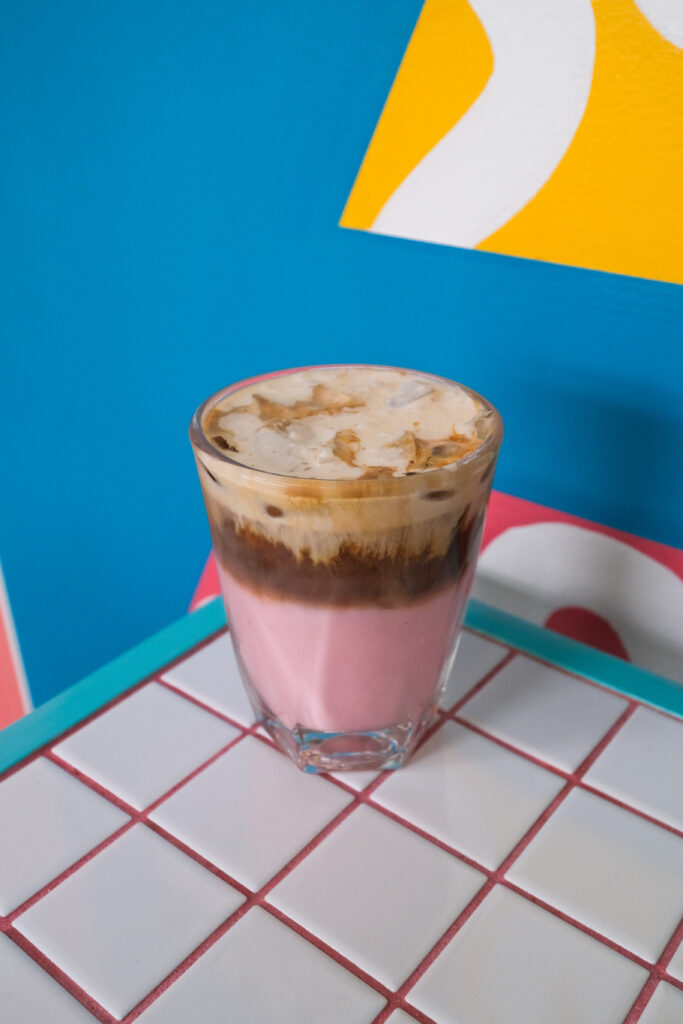
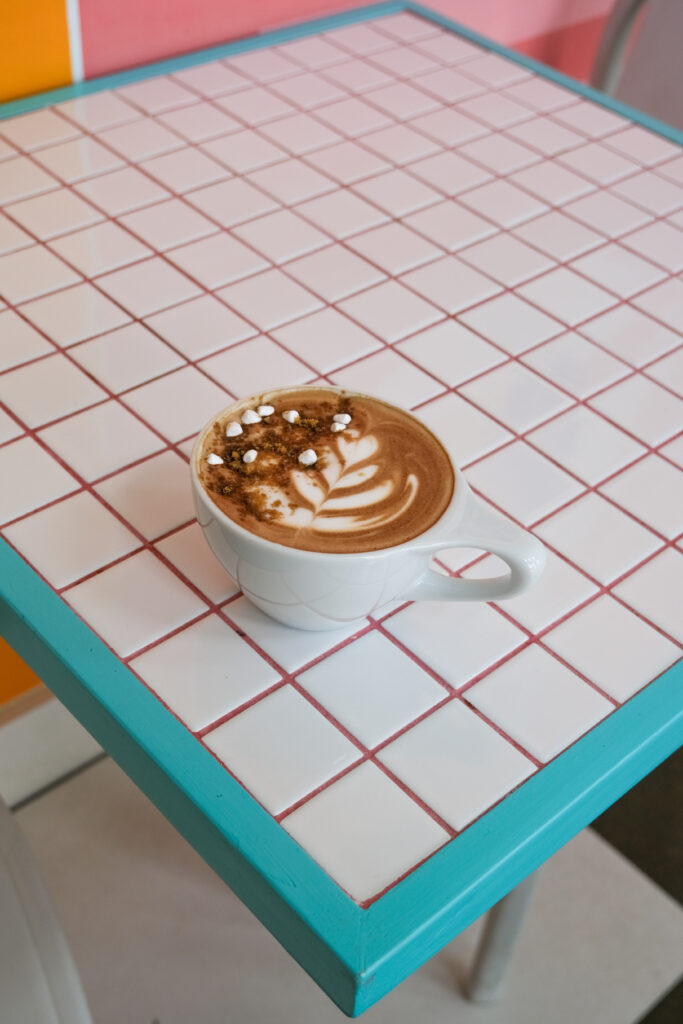
I feel like we’ve done so many stupid things! We made a peanut butter and jelly latte, an iced latte with peanut butter cold foam, strawberry milk, and espresso. We made a Baja Blast matcha (inspired by a Mountain Dew soda flavor available at Taco Bell) with our matcha and rainbow-flavored Nerds candy, which was amazing.
We have a Dirty Dr. Pepper, which is basically an iced vanilla cappuccino topped with Dr. Pepper. We don’t have a ton of room at the shop, which means we have a small ice maker. I needed a drink that was great cold but didn’t need a ton of ice, so that’s how the drink was born.
You not only offer creative drinks but also host many creative events—many of which aren’t coffee-related.
Yeah! We did a pizza shop pop-up inspired by the first t-shirt I ever hired someone to design. I had seen an old-school pizza box on Pinterest, and I loved its design and look. I sent it to a friend and asked, “Can you make me this but make it for my coffee shop?” He made it happen. Then I made a joke about how I should get Costco pizza when we launched it, and then it grew from there. We spent a hundred bucks on pizza, and that was the best hundred dollars I’d ever spent on marketing.
During Pride last year, we built a float using an old jet ski. Then we made t-shirts and hats that said Marty’s Jet Ski Club. We have nothing to do with jet skis, and those shirts don’t even mention we’re a coffee shop, but that’s what makes it fun.
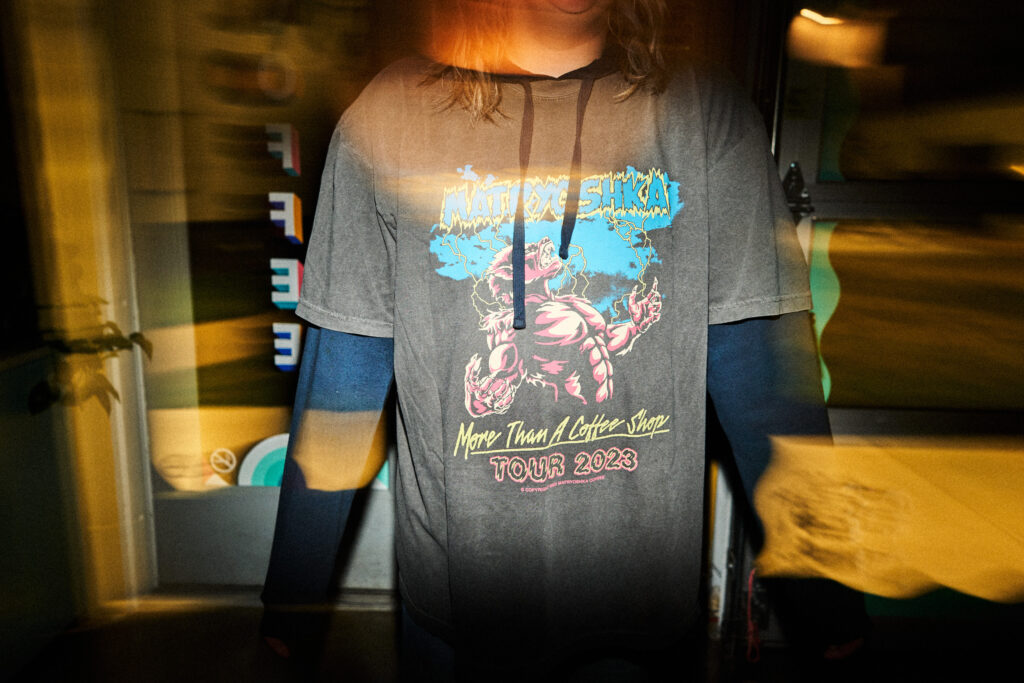
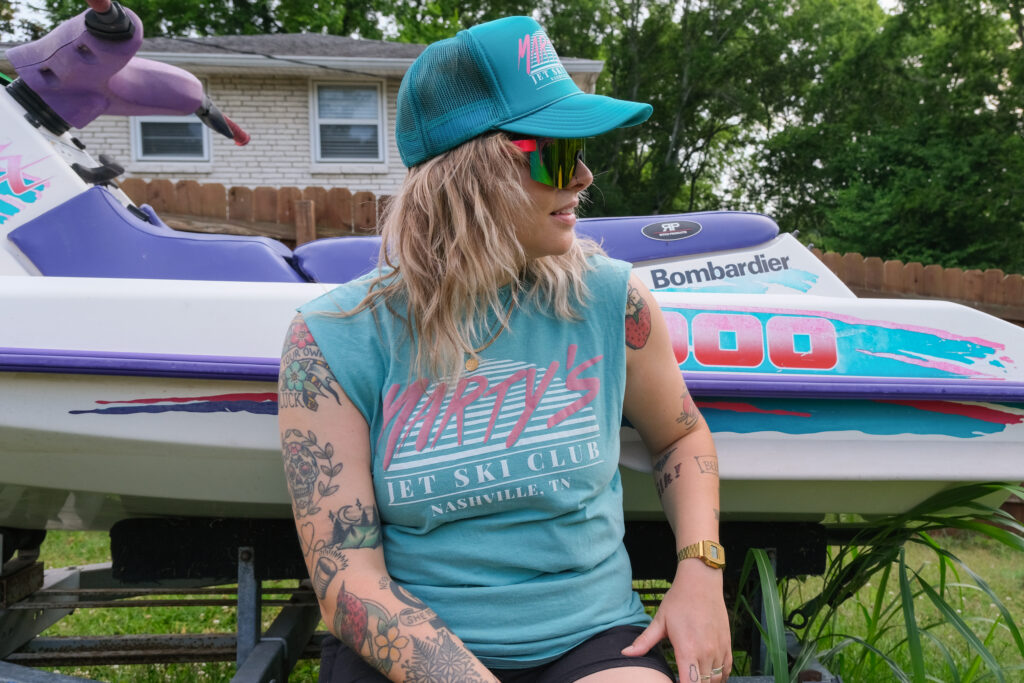
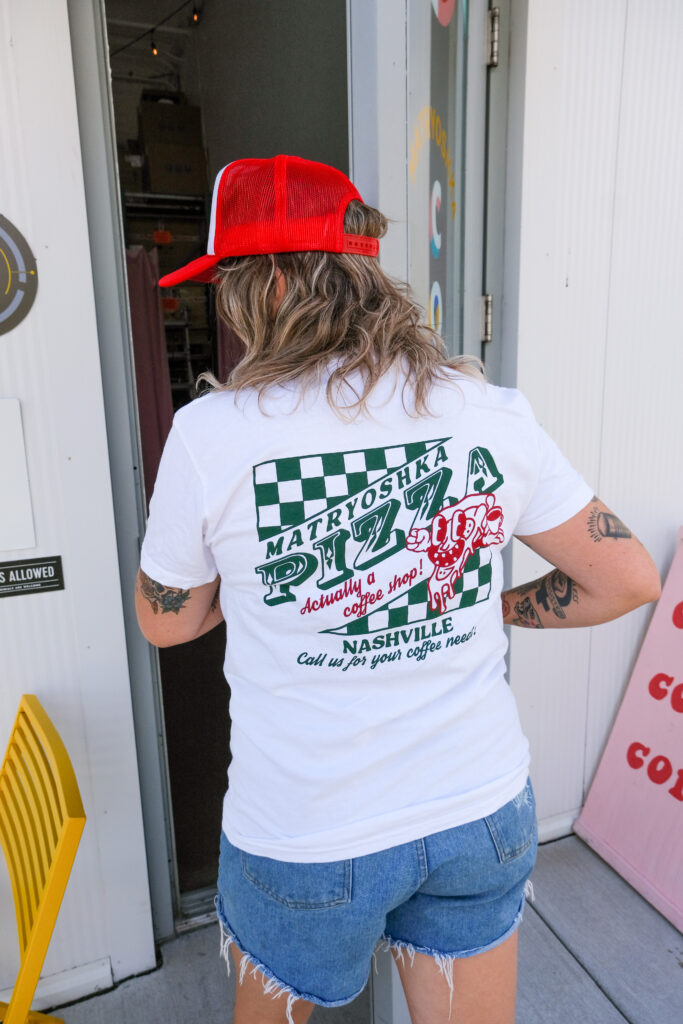
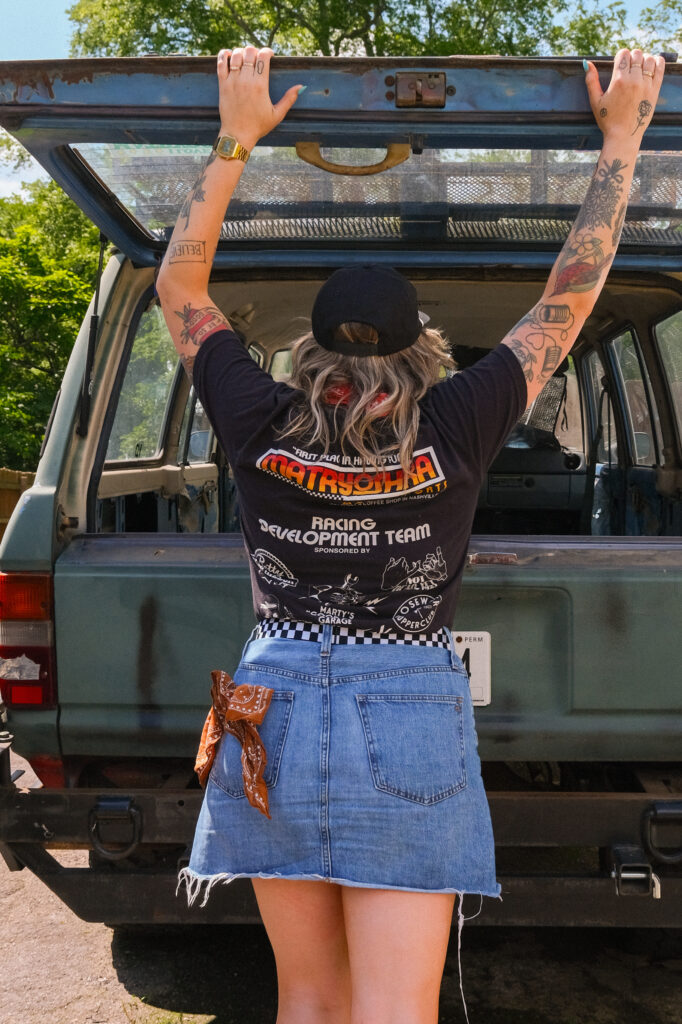
We also sell Pit Viper sunglasses at the shop and got them to sponsor a throwdown. During the throwdown, we held a contest for the best car noise impersonation, and two people really fought to the death for that one. It was amazing.
We’re doing all these things that people in the industry do, but we’re just doing them way less seriously. So many non-coffee people come to our events, and that’s what I want. I want people who’ve never experienced a coffee industry event to have fun.
You were once a social media influencer. How do you think about creating a digital identity for Matryoshka?
I make sure that everything I post is something I would say in real life. Sometimes I swear, and sometimes I don’t use proper grammar—I’m just not worried about it. I don’t post every day because I don’t think that people need to be inundated with the stuff that I have to say. I try to look at what I enjoy looking at while idly scrolling because that’s how people consume things on the internet.
As a media consumer, I get annoyed if you post every day. So that’s how I govern myself on the internet. Is what you’re saying unique? Does it make sense? Is it interesting? Are you delivering it in a way that is captivating to an audience, or are you just posting words? You have to be a person.
I am online quite a bit for my business, but I don’t want to feel pressure to be on there. It’s interesting to balance that because when we do post, we almost always see a direct correlation in higher sales. But at the end of the day, if I don’t want to post, I’m not going to post because I don’t think that’s healthy for me. It’s not sustainable, and it’s not interesting.
You’ve approached your shop with the mindset of what you’ve described as “mess around and find out,” which means giving yourself space to experiment, do unexpected things, and create what makes you happy. You sell drinks based on popular sodas; you sell sunglasses just for fun; you’ve sold hats that say “Queers for Oat Milk.” Do you notice other shops lightening up or being more playful and unserious with their approach to coffee?
Totally. I think we’re entering a wave where coffee is more creative, and people are trying new techniques. I went to Chicago in April for the SCA Expo and visited Dayglow Coffee, which was a life-changing experience. Their drinks are so beautiful and thoughtful.
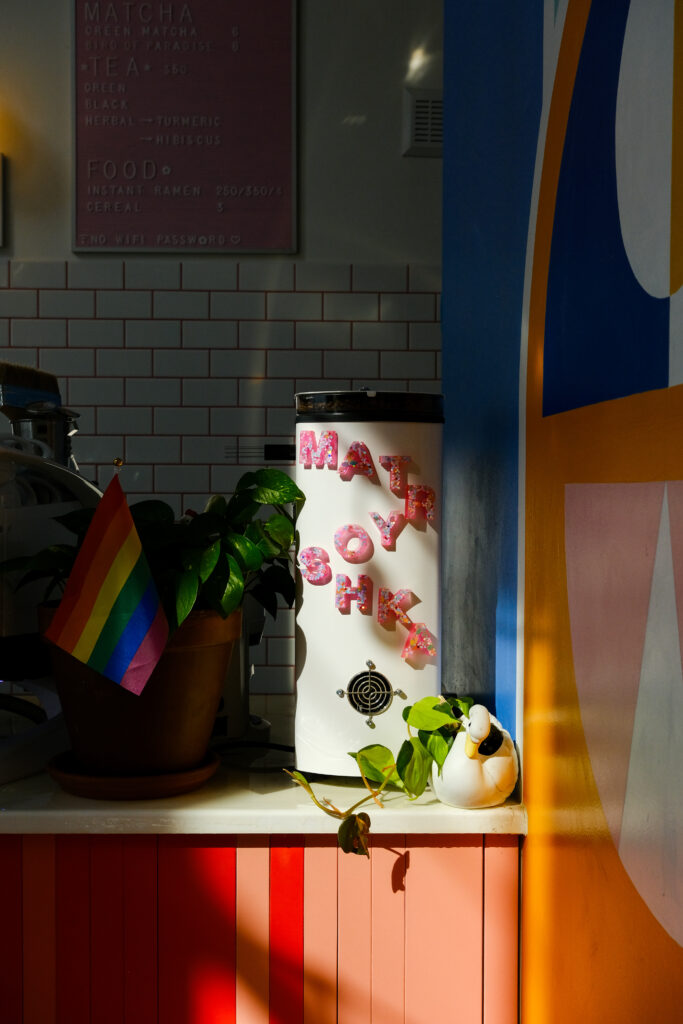
They have two separate menus: one has regular espresso drinks, and the other has specialty drinks, almost like a cocktail menu. They’re doing crazy shit, and they’re doing it really, really well. I’m also experimenting, and experimentation and having fun is where the coffee industry is going, and I’m very grateful that I’m entering coffee right now.
You can have a really good espresso menu, but you can also flex. Why not have fun and combine what you like to showcase your talent?
What is it like for customers who enter Matryoshka for the first time?
A lot of people, when they come to the shop for the first time, get one of our sweeter drinks—but they always try to qualify themselves [almost like they’re apologizing for wanting something sweet], and I don’t want them to feel like they need to do that.
I also don’t like entering a new space and being completely unfamiliar with the drinks on the menu and then feeling like I’m stupid for not knowing. All the people who are making drinks for me started at one point as new coffee drinkers—judging customers for their drink orders or not educating them with patience is the best way to make somebody hate the coffee industry.
When building Matryoshka, I thought about all the times I couldn’t hold a conversation about coffee. I’ve trained my staff that we want people to feel like they can ask us questions. I think we do a good job at that. We try to demystify it all and answer questions honestly.
For example, a person might come in and order a caramel latte, and we tell them, “Yeah, go for it!” But maybe they’re like, “No, I’m just kidding. I want a cappuccino,” implying that a caramel latte is bad or makes you not a true coffee drinker.
But homemade caramel is one of the best flavors in the world, and if you disagree with that, that’s really sad for you. We want people to know that they can have what they want.
If you don’t want caramel, don’t order it! But don’t yuck someone else’s yum.


